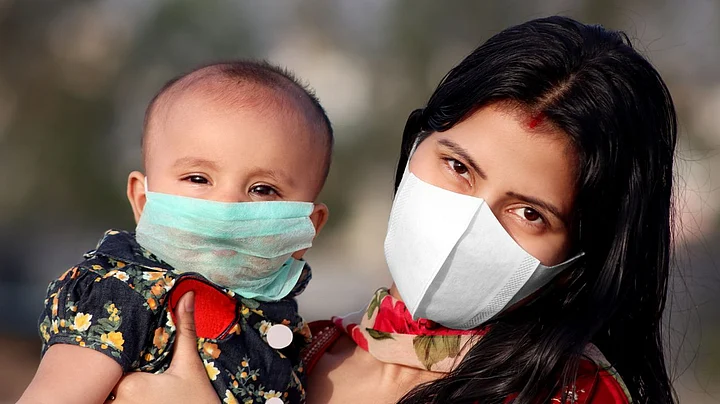The onset of COVID-19 pandemic has caused massive disruptions across various healthcare networks around the globe. It has put immense pressure on all frontline workers to focus on diagnosing and treating COVID-19 patients. And through the collaborative efforts of various stakeholders, effective management to provide timely treatment and develop vaccines for its prevention was undertaken.
But on the other hand, the real brunt was faced by those who were suffering from other illnesses and even co-morbidities associated with them. Especially underprivileged infants who were just born during the pandemic and diagnosed with complex issues like Congenital Heart Defects (CHDs), which require urgent care and surgeries. Various initiatives were taken by public and private sector organizations working together in this field to provide timely medical support, which helped tackle the burden to some extent.
With the rise of Omicron cases, many healthcare setups are now sufficiently equipped to tackle the situation and ensure that everyone receives access to quality healthcare.
How did the pandemic affect CHD treatment for the underprivileged?
The pandemic massively affected underprivileged children who need constant aid to support their basic livelihoods. UNICEF reports that COVID-19 threatens the future of 600 million children in South Asia. While 240 million children already suffer from "multidimensional" poverty, the crisis will lead to poverty for another 120 million children in the region. More attention is needed in medical literature to preserve children's well-being during stressful times such as these. Children’s health is one of the most important issues in the Sustainable Development Goals (SDGs), and science has shown that genetic predisposition changes under the influence of the environment, for example during epidemics, and affects lifelong learning abilities and adaptive behaviours along with physical and mental health and productivity of adults.
The cost of treatment for a child with congenital heart disease is already a heavy burden on many Indian families. Access to these treatments became even more difficult due to the fear and limitation of hospital visits during a pandemic, further adding to the delay in children receiving appropriate treatment. If not treated in a timely manner, certain defects are life threatening for children.
The mounting burden on healthcare systems and its effects on Paediatric Care
The pandemic pushed healthcare systems to their peak; an influx of Covid patients saw hospitals, health centres, clinics, mobile hospitals and makeshift clinics work 24/7 to save lives from the dreaded virus. Many of the hospitals were converted into exclusive Covid-19 hospitals as beds became a scarcity. Patients with other illnesses and ailments were neglected. During the second wave of the Pandemic in India, there was a severe shortage of oxygen in a few cities and surgeries had to be postponed because of that.
Many organizations predominantly working towards child support faced many hindrances across their health networks making it tough to provide timely treatment and support. Hospital, clinic and doctor tie-ups were almost always overburdened with Covid care even though they were working overtime. Nonetheless, many lives were saved thanks to the collaborative efforts put by NGOs, partner hospitals and clinics in identifying, diagnosing, and treating these children.
How is Genesis Foundation supporting the cause?
A strong ecosystem has been in place for providing end-to-end support to children with CHD based on collaboration between our partner hospitals, volunteers, doctors, donors and beneficiaries who come from rural or underprivileged families across India. To identify them, screening camps used to be conducted but because of covid, no screening camps were conducted. With gradual relaxation of the protocols, parents started visiting hospitals with their children who were suffering from CHD.
During both the first and second waves of the pandemic when everything was closed, our partner hospitals provided free transportation. With some family members of our beneficiaries having lost their jobs, hospitals also provided free stay and food to the parents during their course of stay. Helping these families in their dire situations, other philanthropic organizations such as the Rotary helped us in this journey and made new beginnings possible for every child admitted.
With a strong search engine optimization (SEO) presence online, many prospective patients reached out to us through digital means, and they got access to timely treatment thanks to our partner hospitals and doctors involved in this fruitful collaboration.
The pandemic has been hard on our mission, but in July last year when protocols were a little relaxed, we supported 105 children, the highest record for us in a month. The cases emerged in bulk, but our partner hospitals and donors came through and assisted us in saving numerous lives despite having a strained workforce. Despite being short-staffed and dealing with the brunt of the virus, every child received medical support in hope for a healthier life.
